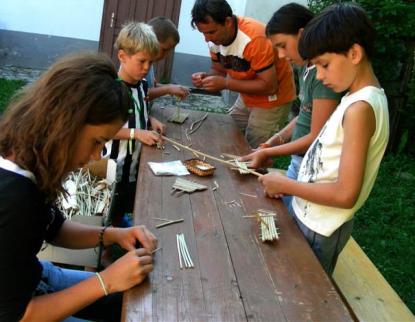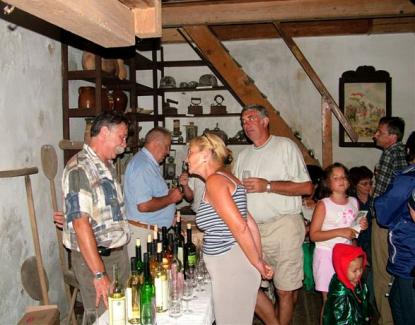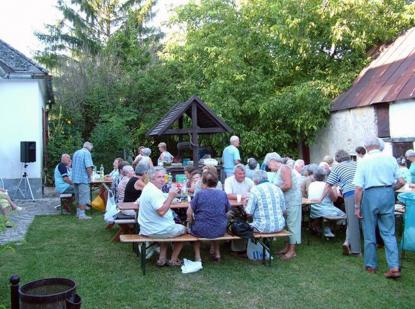2025. July 11. Friday
Watermill - Paloznak
 |
Address: 8229, Paloznak Kisfaludy u.16.
Phone number: (87) 446-250
E-mail: csopakph@csopak.hu
Opening hours: 01.05-30.09.: Tue-Sun 16-19
|
Two mills on the road to Nosztré are mentioned in a contract between the widow Veszprémi György, Lady Liliom, and the Bishop of Veszprém written in 1277. Throughout centuries, six mills operated in the 'Csopaki Séd'.
German speaking population, the Pluls, moved to the area who became owners of all the mills of Csopak via marriages. Molnár Kálmán rebuilt the mill in Kisfaludy Street in 1910 which later his grandsons, the sons of Plul Vilmos inherited.
After nationalization, it was still in operation at the beginning of the 1970's. Afterwards when it was a grain shop the apparatus was still untouched. At the beginning of the 1980's, the building was converted into a national monument. The paddle was renovated in 1982. Unfortunately, it is in need of a restoration today.
Csopak celebrated the 700th anniversary of its existence in 1977. Students of the local primary school organized a tag day and the pieces they colleted are now located in the compilation of the village.
In 2006, the Self-government bought the house and the yard from Plul Kálmán which they wish to convert into a Museum of Local History and a cultural center taking the advice of the National Monument Office and the employees of the Laczkó Dezső Museum into consideration.
German speaking population, the Pluls, moved to the area who became owners of all the mills of Csopak via marriages. Molnár Kálmán rebuilt the mill in Kisfaludy Street in 1910 which later his grandsons, the sons of Plul Vilmos inherited.
After nationalization, it was still in operation at the beginning of the 1970's. Afterwards when it was a grain shop the apparatus was still untouched. At the beginning of the 1980's, the building was converted into a national monument. The paddle was renovated in 1982. Unfortunately, it is in need of a restoration today.
Csopak celebrated the 700th anniversary of its existence in 1977. Students of the local primary school organized a tag day and the pieces they colleted are now located in the compilation of the village.
In 2006, the Self-government bought the house and the yard from Plul Kálmán which they wish to convert into a Museum of Local History and a cultural center taking the advice of the National Monument Office and the employees of the Laczkó Dezső Museum into consideration.



